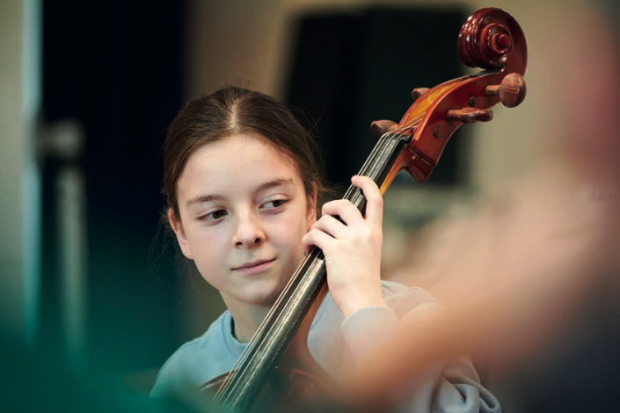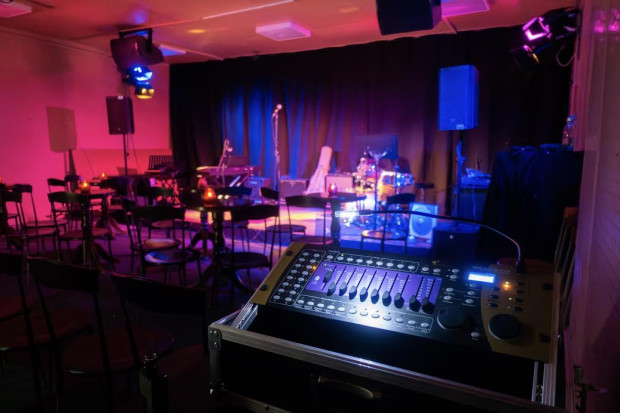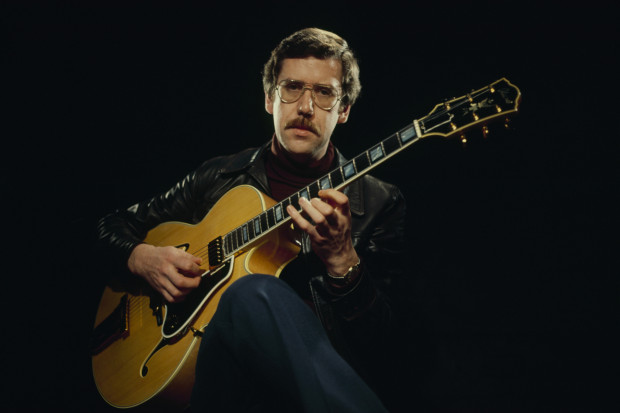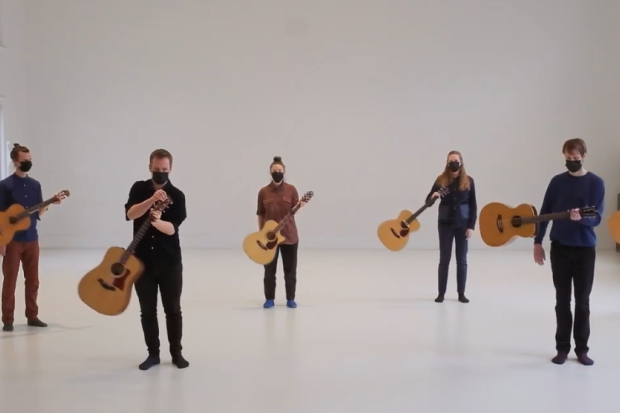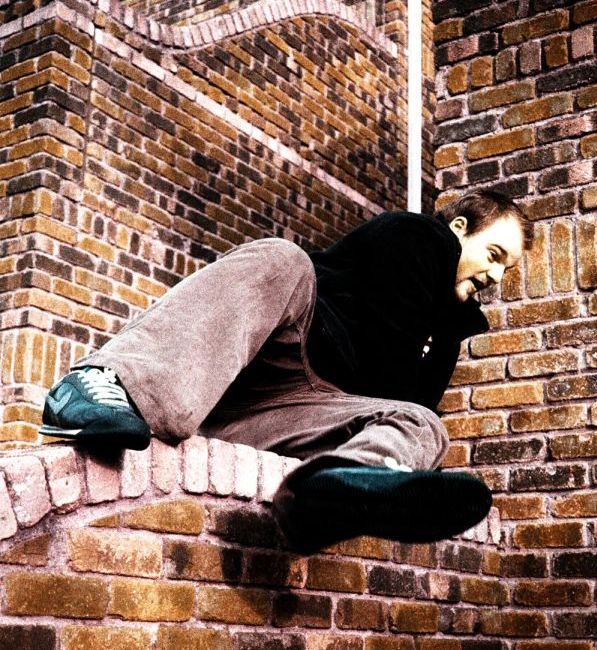
Composing Improvisation
Dylan Rynhart is an Irish musician and composer. Rynhart completed a Masters in Music Technology at Trinity College under Donnacha Dennehy and Owen Drum, and received his Phd in composition from University College Cork in 2010, following study with composer John Godfrey.
Since 2002 Rynhart has led the jazz group Fuzzy Logic Ensemble, in which he also plays keyboards. Rynhart is a member of the Irish Composers’ Collective (ICC), and lectures at Newpark Music Centre.
The Centre for Creative Practices in Dublin will host ‘Fuzzy Logic 3D Audio’, a multimedia presentation of some of Rynhart’s music, on Wednesday 29 February.
Your activities as a composer and musician pick out some very interesting co-ordinates on the spectrum of improvised and composed music. Could you talk a little about the relative importance of these two principles or practices in your musical life and in your music, particularly in terms of how the relationship has shifted or evolved through time?
Improvisation has always been an integral facet of my compositions, relying on a good collaborative relationship with performers. When I write music it is almost always for specific people and so I try to make use of their abilities as best I can. This naturally divides my music into two camps, pieces for performers who have learned improvisation through a jazz idiom, and those who haven’t, although I feel there is very little difference in the end result.
In recent years I have been more focused on the performer’s approach to interpretation and in ways of guiding improvisation by only specifying certain elements of the material, for example, I might specify pitches, metre and tempo where the rhythms are improvised.
Could you discuss some key creative inspirations and techniques that you explore through your music, which do not necessarily relate to this opposition or relationship between improvisation, contemporary jazz idioms, and contemporary composition?
Most recently I have completed a doctorate in composition where I looked at developing a melodic and rhythmic language from my interpretation of speech patterns. I have always been fascinated by complex rhythmic material and so speech patterns seemed like a perfect fit for me and it offered me a fresh approach to melodic phrasing. I spent a long time transcribing speech patterns and I used some of them directly in my music, but the end result was the development of music that was truly composed and yet has a flavour of this angular yet familiar phrasing. Speech or prosodic melody is fascinating, because when it is performed instrumentally it can sound so abstract and yet it is a sound we hear every day of our lives.
In practical terms, you have allegiances in both the jazz and contemporary classical fields; you are represented by the Contemporary Music Centre and Improvised Music Company, for example. Have you noticed any key differences in how these two fields are organised at the institutional or cultural levels, and how do you think these differences affect the opportunities open to young musicians and to audiences?
No actually. There are obviously venues that suit different sub-genres of either field, but there is so much crossover now, that it becomes only possible to classify music by artists’ names, which I feel is much better. This makes it harder for young artists to classify themselves for an audience, but now with audio and video recording an option for everyone, audiences can listen to the music before the gig and decide if they want to go. Just to say also, that anyone interested in music in Ireland should be receiving regular updates from organisations like the IMC, CMC, Journal of Music, Music Network, Culture Fox etc… and be supporting live music. The infrastructure is there, it’s well run and there are great opportunities every week for both the artist and the listener.
You are closely associated with the Irish Composers’ Collective. Could you discuss the way that this collective is run, its aims, and briefly discuss the collaborative process that goes in to producing performances of some of the pieces you’ve written for ICC concerts?
The ICC is quite simply a super forum for the creation and dissemination of contemporary music. Six or seven composers are selected each month from the almost fifty members, and they write music for a specific group of musicians.
As it happens I will have pieces performed at both of the next two ICC concerts. Jim will be performed by the Rhombus ensemble at the new Jazz Central Club at the Central Hotel on Exchequer Street in Dublin on 7 March. This is a swing-style setting of Hilaire Belloc’s Poem, ‘Jim - Who ran away from his Nurse and was eaten by a Lion’, and I am currently writing a new piece for David Adams (solo harpsichord), which will be performed on 20 April in the Kevin Barry Room of the National Concert Hall. I’m really excited about this as I’ve never worked with David before.
You have a hugely interesting multimedia ‘surround-audio/visual experience…from the composer’s point of view’ coming up at the Centre for Creative Practices (CFCP) on Lower Pembroke Street in Dublin on Wednesday 29 February. The presentation is entitled ‘Fuzzy Logic 3D Audio’. Could you talk about the inspirations and processes underlying the show? What, for example, will members of the audience experience on the night in terms of both music/visuals and also the media through which they’re delivered?
Fuzzy Logic 3D Audio will be an unusual concert to say the least. I’m going to record and film a live concert of my music and play it back for an audience on 29 February in the CFCP. I’ll be recording the music using two microphones, one placed in each of my ears and the audience will be listening back to the music using headphones. This means that the audience will be able to hear the sound in 3-dimensions, bypassing their own pinna (with the headphones), and using mine, as it was recorded.
Stepping neatly over the science of it all, this means that the audience will be hearing the music from my point-of-view, moving around the performers and the space, allowing the finer details of the music to be unfolded from every direction. The only thing I’ll recommend to a potential audience would be to bring their own headphones, as they are probably better then mine!
Collaborations with other musicians are obviously important to your compositional and performative routines. Could you talk about how these collaborations have shaped and continue to shape your music?
I suppose my longest running collaboration has been with the Fuzzy Logic band in its various guises. This year is the tenth since its inception and I have found it a superb vehicle for my music. The Fuzzy Logic 3D concert next week will feature: vocalist Sue Rynhart, saxophonist Nick Roth, guitarist Joe O’Callaghan, bassist Dan Bodwell and drummer Matthew Jacobson, all exceptional artists in their own right, but as a composer I am always excited by their musical sensibilities and creative intuition. Collaborations can work in so many different ways, but with a long-running band, the musicians start to musically finish each others sentences and that’s when it really starts to get interesting.
Looking to the future, are you keen to maintain your focus on both the Fuzzy Logic side of your creative practice, and on what might be called your ‘concert music’?
Absolutely, I have a few great projects that I’m trying to get into motion this year on both sides of the aisle, but progress has been slow as we have second small person in the house and he’s very entertaining. Having just finished my doctorate, I have a lot of music I would like to record and release and I have also completed a Mass for choir and jazz piano trio that I’m hoping will be performed this year, fingers crossed for these!
Finally, a more general question I like to repeat in interviews of this kind. As an Irish composer, how do you think your ethnic identity (if you accept one) affects your music, and secondly, what do you think more generally about the situation of the Irish composer — émigré or not — at the start of 2012?
You know, I didn’t feel that my Irish-ness (while I’m very proud of it ) had had a huge bearing on my music until I embarked on my doctorate. As part of this study I was transcribing a lot of speech patterns and I focused on Irish accents as I felt that I would already have some sort of subconscious familiarity with the resulting melodies. The title track of my latest Fuzzy Logic Ensemble album “Mouthpiece”, features a recording of my mother speaking and I used this because I can especially relate to her speaking voice, as perhaps most people would to their mothers. I found, after all this transcription, that I was hearing the melodies in people’s voices as I spoke to them which kind of brightened up my world a bit and is certainly an influence in my music. This is not unique to Ireland but it certainly adds to the factors that make my art a product of my environment.
For more details about Fuzzy Logic 3D Audio, and to buy tickets, go to cfcp.ie
Dylan Rynhart’s website, where you can listen to music, read about future projects, and more, is here.
Published on 22 February 2012
Stephen Graham is a lecturer in music at Goldsmiths, University of London. He blogs at www.robotsdancingalone.wordpress.com.












